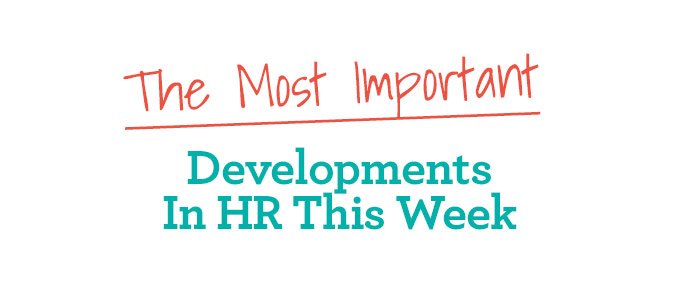
Les Moonves was the 700th person accused of sexual harassment in the #MeToo era, and according to a new report released this week, it was worse than we thought. CBS was a microcosm of everything wrong when it comes to sexual harassment and bullying in the workplace: A longstanding culture of it happening. A powerful man’s reprehensible behavior an open secret, with people at all levels of the company, from employees to high-ranking execs to members of the board, knowing about it and doing or saying nothing. Women told to brush it under the rug. Employees afraid to come forward because people in authority knew about it and didn’t care. Those who stayed quiet, rewarded. That nightmare is now over at CBS, and we hope, everywhere else. The New York Times


Looks like the rideshare industry is in for a bumpy ride. NYC’s Taxi and Limousine Commission voted on Tuesday to require that Uber and Lyft drivers get a minimum of $27.86 per hour. Not for nothing, but that’s a pretty robust minimum wage, tantamount to a $10,000 raise. Great news for drivers. But for passengers? Not so much. They most certainly will see a hike in fares. Uber and Lyft aren’t happy, saying it will not only make it more expensive for riders but also disincentivize drivers from giving rides to and from the ever-congested Manhattan. (We’re not sure why … if they’re getting almost $30 an hour, they won’t care if they spend that hour inching around Midtown.) New York’s city council is also getting into Uber’s and Lyft’s business, preventing them from hiring new drivers for a year to combat the congestion in the city that everyone attributes to the glut of rideshare drivers out there. Business Insider


A new book, “Prosperity: Better Business Makes the Greater Good,” by Colin Mayer, a business prof at Oxford, challenges economics guru Milton Friedman’s principle that business has only one social responsibility: increasing profits. Not so fast, says Mayer. Companies should find a purpose that is broader than the amassing of profits. They should be “doing well by doing good,” and organize their governance, leadership, and incentives to elevate human, social, and natural capital, as well as their own financial performance. It’s not because of the warm and fuzzy factor, either. It makes good financial sense. Firms that pursue sustainability or social responsibility enjoy higher returns, lower risks, and lower costs of capital. The Economist


Facebook has been dethroned as the king of Glassdoor’s annual “100 Best Places to Work” list, released on Tuesday. It fell down to the seventh spot on the list. (Still impressive.) Buzzfeed reports the fall from the top was caused by tensions and tumult that are roiling inside the social media giant after the brand-poisoning, continued mishandling of very public problems. The report goes on to say employees are hoping for a “Dara moment,” referring to when Dara Khosrowshahi was brought in to replace embattled Uber cofounder Travis Kalanick last year. The crux of the matter, if you ask us, is the truth and validity of FB’s mission, connecting the world, which its employees embrace like a raison d’etre, has been called into serious question. It has caused employees to wonder what they’re really doing. Are they connecting the world or collecting data? Yahoo Finance


In another glimpse inside the “Best Places to Work” list, Southwest Airlines ranked 10th overall and first among airlines, thanks to employees lauding the company for its opportunities for career growth, exceptional company culture, and unbeatable perks, like free flights for family members. Hiring the right people is a top priority, and at Southwest, they hire for skills like communication, teamwork, leadership, relationship-building, balance, and dependability and train for more on-the-job skills. Also important: Employee feedback is serious business at Southwest, which conducts an annual survey that drives action plans for improvement. Glassdoor










